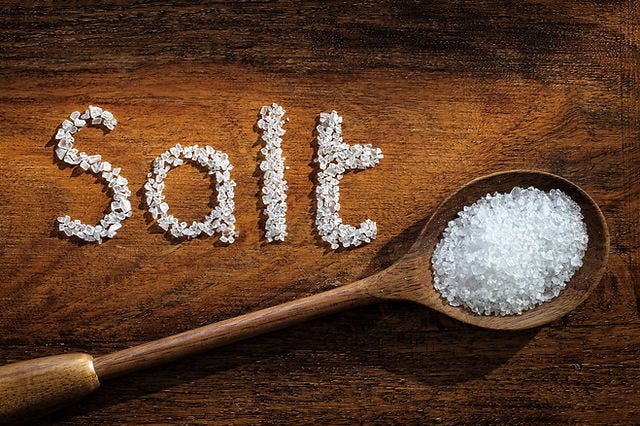Salt: Is it Good or Bad?
Written by Devanshi Sharma
Salt, a common household staple, plays a vital role in human health but can also cause significant risks if consumed improperly. Understanding its dual nature is essential for maintaining a balanced diet.
On the positive side, salt, or sodium chloride, is crucial for various bodily functions. Sodium, one of its key components, helps maintain fluid balance, transmit nerve impulses, and contract and relax muscles. Without adequate sodium, our bodies could not function properly. For instance, it helps regulate blood pressure and volume, ensuring that our organs receive sufficient blood flow. Additionally, sodium is vital for proper brain function, influencing cognitive processes and mood regulation.
However, while a certain amount of salt is necessary for health, excessive consumption can lead to severe health issues. The World Health Organization (WHO) recommends an intake of less than 5 grams (approximately one teaspoon) of salt per day for adults. Consuming more than this can lead to high blood pressure, a major risk factor for cardiovascular diseases, including heart attacks and strokes. Excessive salt intake is also linked to other health problems, such as kidney disease, osteoporosis, and stomach cancer.
One of the main challenges is that many processed and restaurant foods contain high levels of hidden salt, making it easy to consume more than the recommended amount without realizing it. Foods such as bread, processed meats, and canned soups often have surprisingly high salt content. Therefore, it is essential to read nutrition labels and be mindful of salt intake.
To balance the benefits and risks, it is advisable to use salt sparingly in cooking and to flavor food with herbs and spices instead. Moreover, increasing the consumption of potassium-rich foods, such as fruits and vegetables, can help mitigate the adverse effects of sodium by balancing the body's sodium levels.
In conclusion, while salt is essential for health, moderation is key. By being mindful of salt intake and making good dietary choices, we can enjoy its benefits while minimizing potential health risks. Understanding the fine line between its necessity and excess can lead to better health outcomes and a more balanced diet.
Written by Devanshi Sharma from MEDILOQUY


